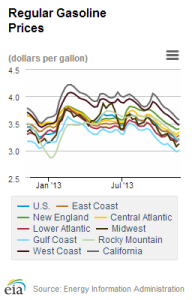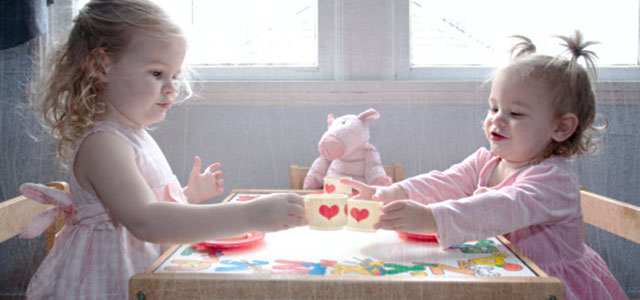

Two sociologists have found that parents who have daughters are more inclined to support the GOP and turn a cold shoulder to Democrats.
In newly published findings that challenge earlier research, Dalton Conley of New York University and Emily Rauscher of the University of Kansas found that having more daughters than sons and having a daughter first “significantly reduces the likelihood of Democratic identification and significantly increases the strength of Republican Party identification.”
[and]
The daughters effect is considerably stronger among better educated and wealthier parents, they find. But among those farther down the socioeconomic ladder, it weakens to statistical insignificance.
Their startling conclusions are based on data collected two decades ago from 661 respondents with biological children interviewed for the 1994 General Social Survey conducted by the University of Chicago’s National Opinion Research Center. Even though this national trend study has been administered regularly since 1972, the 1994 survey is the only one that included questions about the sex and birth order of a respondent’s biological children. (Surveys typically measure only whether a respondent has any children, including step-children and adopted children.)
The researchers note that their results fly in the face of the few other studies that test the effect of daughters on political attitudes. Among them is a 2008 voting analysis of members of Congress. It found U.S. Senators and Representatives with more daughters voted more liberally than other members. A 2010 study in Great Britain found having daughters increased the likelihood of voting for the Labor or Liberal Democrat parties as opposed to the Conservative Party, though the data are limited to “children who live at home, do not include information on those who have left home, and include step-children,” Rauscher and Conley write.
However, their findings are consistent with a recent study that found boys who grew up with sisters in the house were more likely to identify as adults with the Republican Party.
But why would having a daughter cause parents to become more Republican? The authors speculate that men and women might want more socially conservative policies when they have daughters and thus be more attracted to the GOP.
Conley and Rauscher caution that having daughters is not the only factor or even the most important one predicting party identification. The authors only studied the effect of the sex of children and not the gender of other family members, though they did control for a variety of factors including the parent’s education, age, religion and gender.
[gender makeup of siblings]
About the authors: Dalton Conley is University Professor at New York University and formerly served as the university’s Dean for the Social Sciences and Chair of the Department of Sociology. Emily Rauscher is an assistant professor of sociology at the University of Kansas.
